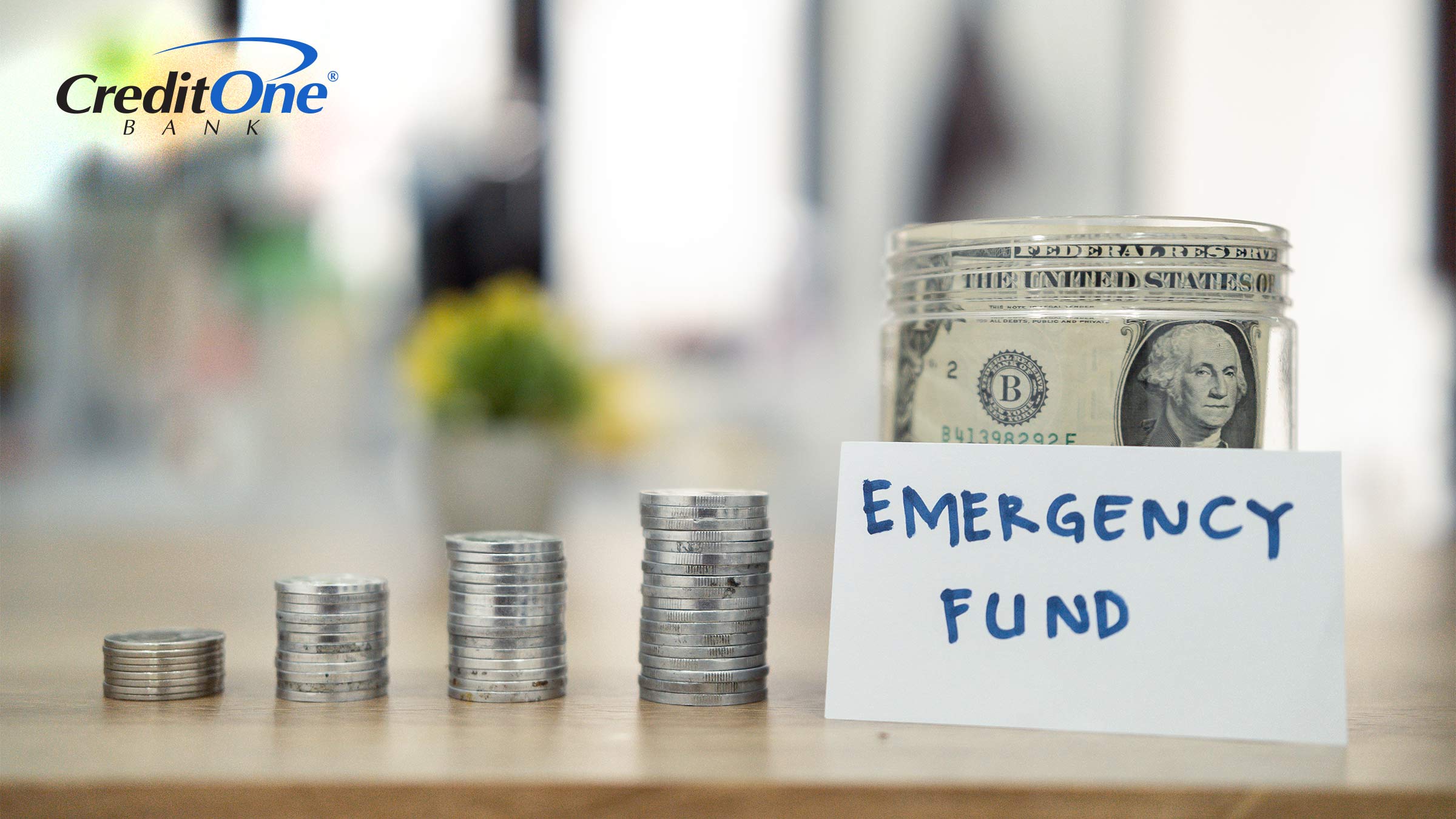
How to Save for an Emergency
October 27, 2025
When the unthinkable happens, it’s important to have a rainy day fund for emergency expenses. These tips can help you save for your emergency fund.

Introduction
Two in five Americans (42%) and nearly half of women (49%) don’t have savings put aside for an emergency, according to a U.S. News financial wellness survey. And yet 60% of us have faced an unexpected expense over the past year. That leaves many families completely unprepared for any financial costs that come out of the blue.
You might be thinking, “No big deal, I’d just use credit for that.” But more than three-quarters (76%) of consumers don’t even have an emergency credit card set aside for that purpose, according to an emergency savings survey by Credit One Bank.
It’s easy to assume that you’ll never be on the receiving end of a life-changing financial crisis. But the truth is, we’re all at risk of finding ourselves dealing with a sudden emergency. That could be a job loss, medical bills, a family death, car problems, home repairs, or a natural disaster.
So what’s the solution? Well, you’ve probably heard this before, whether you acted on it or not. But building an emergency fund — also called a rainy day fund — is one of the best things you can do for your future security.
Let’s take a look at five tips to help you painlessly save money for an emergency.
Streamline Your Current Spending
The first step is to take stock of your current budget, including what’s coming in and what’s going out each month. Then decide what expenses are “wants” as opposed to “needs” — and which of those non-critical expenses can be cut from your spending.
You can track all this the old-fashioned way, with pen and paper. Or you can use a simple spreadsheet, like a Google Sheets or Microsoft Excel file. And if you’d like to automate the process further, try using a budgeting app like Rocket Money, Quicken Simplifi, Monarch, or Empower. These help you analyze your spending and uncover where you can save a few bucks to put toward an emergency fund.
Calculate How Much You’ll Need To Save
Once you’ve outlined your essential expenses — like rent, mortgage, car payments, food and utility bills — you can calculate how much money you need to cover those basics. The rest could in theory go toward savings. But if you’d rather keep some fun and entertainment in the mix, you might want to consider a framework like the 70/20/10 budgeting rule.
Experts say you should save enough for at least 3 to 6 months’ worth of expenses, which of course will vary based on your lifestyle. Depending on where you live, how you get around, whether you’re single or married, and if you’re a parent of young children, teenagers, or none at all — everything could look totally different.
So choose a number that makes sense for you, and work towards that. It might take a while to get that nest egg built, but it will be worth it.
Commit To Putting Money Away
As with many things in life, saving money is easier said than done. Many people call it “paying yourself first,” which might sound odd since it comes after your essential expenses. But the point is that it should be a priority.
One of the most efficient ways to consistently build savings is through automatic deposits into your savings account. You could have a transfer done every pay day, once a week, or monthly. And some banking apps have a round-up feature that funnels the change from every debit card purchase straight to your savings. For example, if your purchase comes out to $19.61, the other 39 cents goes to savings and your debit transaction ends up an even $20.
Find an Additional Source of Income
If you don’t have enough money to put aside from your primary job, try looking for extra ways to earn — like a side hustle. You could be a rideshare driver for Uber or Lyft, make deliveries with Grubhub or Postmates, pick up groceries through Instacart, do small jobs from Taskrabbit, or explore plenty of other options for app-based gig work.
You could also use sites like Upwork, Fiverr or Thumbtack to get freelance work as a designer, writer, photographer, or whatever your marketable skills are. If you’re an artist or crafter, you could monetize your hobby by opening an Etsy store or selling your wares on Amazon.
You can be a dogwalker or pet sitter through Rover, Wag! or Care.com — which also lets you offer babysitting or senior care services. Of course, there’s always the tried-and-true neighborhood babysitting or yardwork for people you know.
And if you have some things to get rid of, you can make some money through a garage sale, swap meet or eBay listing. In fact, you could scout other people’s garage sales and flip those found treasures onto eBay as well.
If none of that’s appealing, a secondary part-time job is always an option. The point is to figure out what you could do for extra income, and then filter most of those earnings into savings.
Open Only in Case of Emergency
This phrase usually applies to fire extinguishers and first aid kits, but it’s also relevant here. Your emergency fund is meant for emergencies (obviously), so it’s important not to dip into it for any other reason. And in case you’re hoping for a loophole, sorry — calling it a rainy day fund doesn’t mean you can take out money the next time it rains.
To reduce the temptation, you could set up your emergency fund in a completely different bank from your everyday checking account. Like they say, “Out of sight, out of mind.” A high-yield savings account is often the best choice because it lets you earn interest while your money grows. But unlike some investment alternatives, a savings account gives you easy access to the funds when you need them.
Bottom Line
Emergency funds don’t prove useful until you need them — but in the face of an unexpected crisis, they’re absolutely crucial. It might take some time and patience to get an emergency fund in place, but taking small steps today can prepare you for big financial shocks in the future — without having to rack up sudden debt on your credit card.
In the meantime, it could be a good idea to keep one emergency credit card at the ready. If you use it just enough so it’s not closed for inactivity, you’ll have that extra tool as backup leverage in a crisis.
Heather is an accomplished writer and editor in the financial and business industries, with expertise in credit building, investments, cryptocurrency, entrepreneurship, and thought leadership. She loves investigating and pulling apart complicated topics to make them simple, engaging, and easy to understand. But she also enjoys writing about the personal side of life, including self-help, creativity, relationships, families, and pets. She approaches everything from a yin-yang perspective, so her passion for wordplay and metaphors is always balanced with an intense focus on accuracy. Heather has a BFA in Visual Arts from York University, and has worked as a journalist in all media: TV, radio, print, and online.



